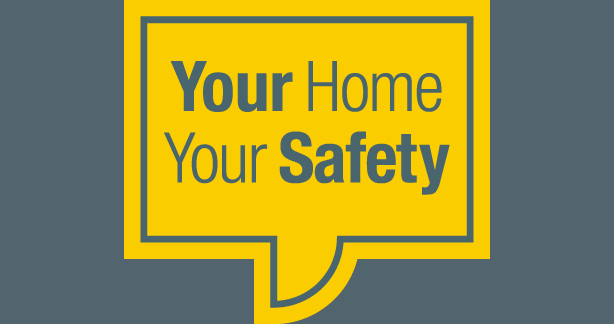Getting help and support

This guide to help and support is designed to help navigate common issues you might face living in a high-rise building.
It shows who to contact for problems outside the scope of the Building Safety Regulator (BSR) and those not covered by your building’s accountable persons.

Before you begin
Identify who your landlord is: this information is on your tenancy agreement if you are a tenant of a local council, housing association Resident Management Company or a private landlord.
Always check your tenancy agreement: this document outlines your rights and responsibilities as a resident, tenant or leaseholder, and your landlord’s responsibilities towards you.
See if you can report issues online: most local council websites now have online forms to report issues such as anti-social behaviour or neighbourhood nuisance.
If you are a leaseholder in a Resident Management Company (RMC), the Right to Manage scheme or a Commonhold property, keep your building manager’s details to hand for help and support.

Who to contact
Who to contact – if you are a tenant or resident in a local authority or housing association-managed high-rise building
Repairs and maintenance
- Contact your landlord: this includes issues like leaky pipes, broken taps, mould, faulty electrics, internal lighting, lifts, bin chutes/communal bins, smoking in communal areas, vandalism and doors/intercoms etc.
- For council-owned property: report repairs to your local council, including urgent or emergency repairs under the Right to Repair scheme
Neighbour disputes/Anti-Social Behaviour (ASB)
If possible, talk to your neighbour to see if you can resolve the dispute
If that isn’t possible or you can’t resolve the issue, keep a record of the dates, times and incidents and contact:
- your landlord: they may be able to intervene
- the Police: call 999 if you are reporting a crime in progress or if someone is in immediate danger. Report crimes online or by calling 101 if they are not an emergency
Utilities
Gas safety
- contact your local authority or housing association for repairs or your legally required annual gas servicing
- contact the Gas Safe Register
- to report a gas or carbon monoxide emergency, or if a pipeline is struck (even if no gas leak has occurred) call 0800 111 999 – 24 hours a day
Electricity
- contact your utility provider
- for emergencies or power cuts call 0800 0294285 or 105 from landline or mobile
Water
- contact your utility provider
Environmental Health issues
Contact your local council’s Environmental Health Team for:
- asbestos: presence in the building, especially if damaged or at risk of exposure
- noise complaints
- cleanliness issues: rubbish collections or fly-tipping
- contaminated water
- pests: infestations, rodents, bats, etc.
- scaffolding or dust complaints
Parking issues
- parking in a resident designated bay: contact your landlord
- parking blocking a fire exit: contact your local council’s Parking Control department, or in the case of an emergency the Police.
Fire safety concerns
- report issues like faulty equipment, blocked exits or non-functioning emergency lighting to your building’s managers or accountable person(s)
- if needed, contact your local council or fire and rescue service for further advice
Who to contact – if you are a leaseholder or resident in a Resident Management Company, Right to Manage scheme, Commonhold or private landlord-managed high-rise building
Repairs and maintenance – in communal areas
- contact your landlord: this includes issues like leaky pipes, broken taps, mould, faulty electrics, internal lighting, lifts, bin chutes/communal bins, smoking in communal areas, vandalism and doors/intercoms et
Neighbour disputes/Anti-Social Behaviour (ASB)
If possible, talk to your neighbour to see if you can resolve the dispute
If that isn’t possible or you can’t resolve the issue, keep a record of the dates, times and incidents and contact:
- your landlord: they may be able to intervene
- the Police: call 999 if you are reporting a crime in progress or if someone is in immediate danger. Report crimes online or by calling 101 if they are not an emergency
Utilities
Gas safety
- for your own safety and the safety of other residents it is important to have any gas appliances checked regularly
- contact the Gas Safe Register
- to report a gas or carbon monoxide emergency, or if a pipeline is struck (even if no gas leak has occurred) call 0800 111 999 – 24 hours a day
Electricity
- contact your utility provider
- for emergencies or power cuts call 0800 0294285 or 105 from landline or mobile
Water
- contact your utility provider
Environmental Health issues
Contact your local council’s Environmental Health Team for issues away from your building, such as:
- noise complaints
- fly-tipping
- contaminated water
- pests: infestations, rodents, bats, etc.
Parking issues
- parking in a resident designated bay: contact your landlord
- parking blocking a fire exit: contact your landlord, or in the case of an emergency the Police.
Fire safety concerns
- report issues like faulty equipment, blocked exits or non-functioning emergency lighting to your building manager, landlord or accountable person(s)
- if needed, contact your local council or fire and rescue service for further advice

Additional resources for help and support
- Citizens Advice: may offer legal advice on rent, service charges and private landlords
- Shelter: provides housing advice
- Your Local Councillor: find their contact details on your local council’s website
- Your Local MP
- The Housing Ombudsman: deals with complaints about landlords (social housing)
- The Leasehold Advisory Service: independent advice for residential leaseholders
- The Property Institute (TPI): offers a range of guidance useful for Resdient Management Companies, especially on health and safety and managing property risks
- Regulator of Social Housing: regulates social landlords, including local councils
- ‘Make things right’ campaign: provides social housing resources if you have an issue with your home or your landlord
- Property Chamber first-tier tribunal: handles applications and appeals relating to disputes over property and land

Remember
- If you’re unsure who to contact, refer to your tenancy agreement or contact your local council, housing association or building manager for help and support
- Keep records of any communications with your landlord, Resident Management Company or relevant authorities

Please download a printable version of this guide, if you want to share it with other residents.
